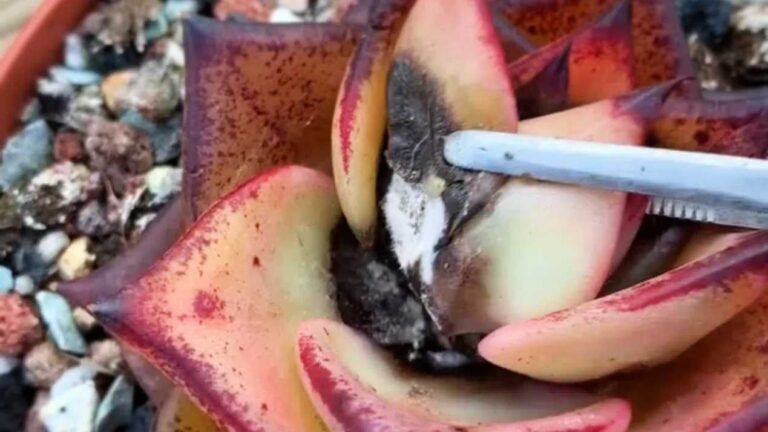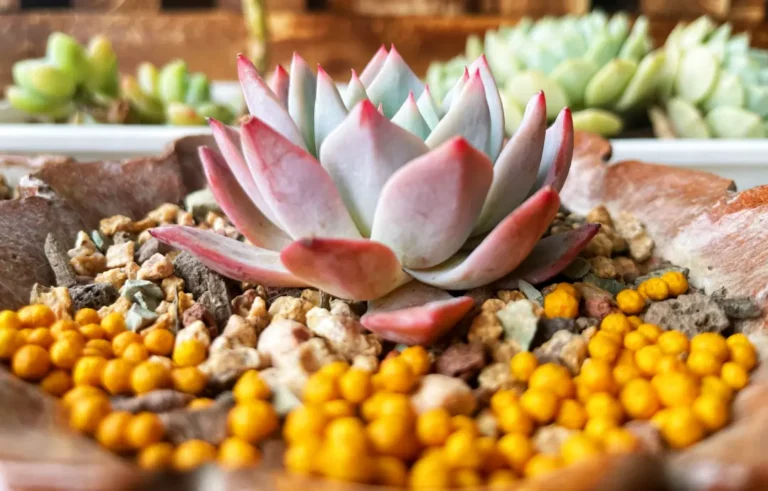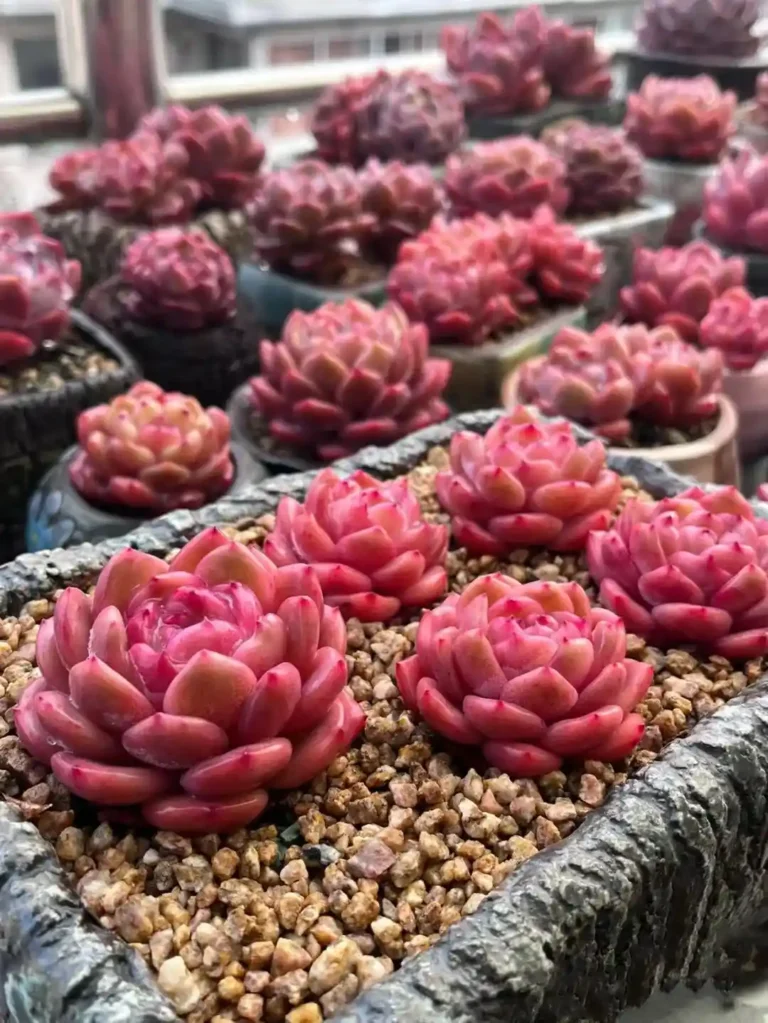Why Summer Rain Kills Succulents: 5 Fungal Diseases & How to Prevent Them
Succulent summer rain must read: why your “desert baby” will be sick?”Last week my white brocade tortoiseshell dragon got caught in the rain, and black spots suddenly appeared on the leaves… It was heartbreaking!” –This is the most common distress signal I receive. Today we’re going to talk about: why is a summer rain shower an invisible killer of succulents?
High Temperature + High Humidity = Fungi Party: 4 Crisis of Succulents Getting Drenched in the Rain
- Fungi’s Carnival Season
Succulents are native to dry areas (such as the Mexican Desert), and their foliage is like a desert traveler – it hates the wet. But fungi (Fungi) are the opposite! Summer rain + heat = a five-star breeding ground for fungi.
Take a chestnut 🌰:
Imagine your succulent leaf is a dry loaf of bread and the rain soaks it into a wet sponge – fungi are like mold, instant party!
- Rain Spreads Disease
Fungal spores hitchhike: rain washes the soil and splashes the leaves with disease.
Wound infection accelerates: raindrop strikes create tiny wounds, which pathogens take advantage of to invade (especially thin-leafed varieties such as Rainbow Jade and Kumamoto).
- Humidity explosion disaster
Leaf center waterlogging: rose-like succulents (e.g. Chihuahua, Silent Night) Leaf center waterlogging for more than 24 hours → Risk of heart rot ↑300%
Soil surface humidity: granular soil turns into a quagmire → Roots suffocate and rot
- List of common summer fungal diseases
Disease name Symptoms High-risk varieties
Black spot disease Leaf blade with black round spots Rainbow Jade, Tia
Powdery mildew Leaf blade covered with white powder Beardtongue, mage system
Brown rot The base of stems turns brown and soft Rotten Old stumps, clustered succulents
Rust Disease Orange rusty spots Agave, Dodecanter
Emergency Rescue Guide: 48-hour golden treatment period after getting wet
Step 1: Quick drying
Leaf Blowing Heart: use an air blower or a small fan to blow out the water between the leaves (don’t use a paper towel to wipe it off – it will damage the powdery cream!)
Soil change first aid: If the soil has become muddy, immediately change to 70% granular soil (volcanic rock + terracotta).
Step 2: Fungicide Options
Preventive: Azoxystrobin – spray before rain to form a protective film
Therapeutic: Propiconazole – apply as soon as black spots appear
Natural Solutions: Baking soda water (1 teaspoon + 1 liter of water) – for mild powdery mildew
Step 3: Isolation Monitoring
Diseased plants are placed separately to avoid infecting healthy plants
Check the backs of the leaves and the base of the stems for 3 consecutive days
Rainproofing Black Tech: Top 5 for English-speaking Meat Lovers
Mobile Rain Shelter: search Amazon for ” Pop-up Plant Cover”, $30 seconds to open and close
Inclined trellis: let the rainwater flow down the incline (IKEA’s BROR series is super useful)
Absorbent magic weapon: pavement with terracotta (Akadama) → absorbs water quickly and doesn’t clump
Smart weather forecast: use Planta App to remind to put away the succulent an hour before the rainfall
DIY Rainfall Sensor: Arduino + humidity sensor, rain automatically starts the fan
Lesson learned the hard way: that rain shower cost me $500…
“Last July, I was lazy to confiscate the succulents on my balcony, and a thunderstorm caused 30 pots of babies to collectively black rot… The most heartbreaking one was the 3-year old Raspberry Mallow, which was worth $200+!” Now my secret to preventing rain is: always believe that the weather forecast will lie, early action is the king!
Ultimate disease prevention mnemonic
“Dry your leaves quickly after rain, change the soil to keep your roots safe.
Spray fungicide in time, isolate diseased plants tightly.
Ventilation is more important than ever, and humidity monitoring is the first thing to do.
Advice from a succulent florist:
“I know it’s a pain in the butt to move succulents in and out… But think of all the American dollars you’re spending on them, and be diligent! After all, prevention is much cheaper than cure.





